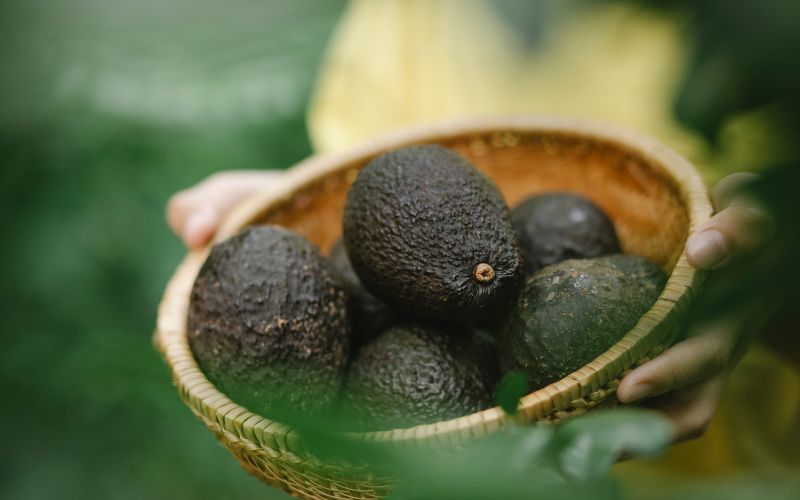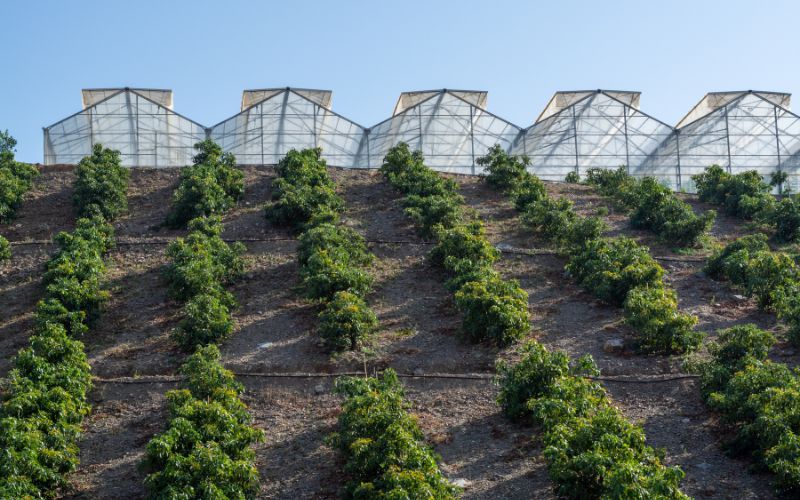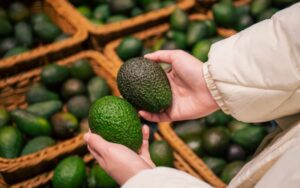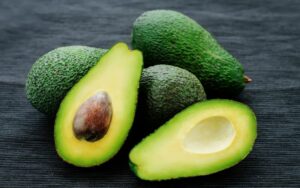Avocado production plays a crucial role in the global market, and the popularity of this nutritious fruit continues to rise. In this article, we’ll explore the top 10 avocado producing countries worldwide, shedding light on the countries that contribute significantly to this creamy, green delight.
Why Avocado Production Matters
Before we delve into the top avocado producing countries, let’s understand why avocado production is of such great importance. Avocados are not only delicious but also packed with nutrients, making them a staple in many diets around the world. The increasing global demand for avocados has led to a thriving industry with economic and nutritional significance.

The Top 10 Avocado Producing Countries
The following table shows the top 10 avocado producing countries in the world in 2022, ranked by production amount in tons. Mexico is the clear leader, followed by the Dominican Republic and Peru. Indonesia, Kenya, and Colombia are also major producers.
| Rank | Country | Production in 2022 (tons) |
| 1 | Mexico | 2,442,945 |
| 2 | Dominican Republic | 979,618 |
| 3 | Peru | 777,096 |
| 4 | Indonesia | 669,260 |
| 5 | Kenya | 374,970 |
| 6 | Colombia | 366,330 |
| 7 | Chile | 297,175 |
| 8 | Brazil | 267,600 |
| 9 | United States | 216,600 |
| 10 | Rwanda | 13,500 |
Mexico: Leading the World in Avocado Production
Mexico holds the crown as the world’s top avocado producer, responsible for a significant portion of the global avocado supply. Its favorable climate and extensive cultivation areas make it an avocado powerhouse. Mexico predominantly produces the Hass avocado variety, known for its creamy texture and rich flavor. Hass avocados from Mexico are widely recognized and favored worldwide for their consistent quality.

Dominican Republic: A Rising Star in the Avocado Industry
The Dominican Republic has seen a remarkable increase in avocado production in recent years. Its avocados are gaining popularity in international markets. The country primarily cultivates the Hass avocado, similar to Mexico. The Dominican Republic’s Hass avocados are prized for their smooth, buttery texture and exceptional taste, contributing to their growing export demand.

Peru: Avocado Production on the Upswing
Peru has emerged as a prominent player in the avocado industry, with a growing export market. Its avocados are known for their quality and taste. Peru specializes in producing a variety of avocado types, including Hass, Fuerte, and Pinkerton. Each of these varieties offers unique flavors and textures, catering to diverse consumer preferences.

Kenya: Avocado Industry in Africa
Kenya is making its mark in the avocado industry, contributing to the continent’s avocado production. Its avocados are exported to various destinations. The primary avocado variety cultivated in Kenya is the Fuerte avocado, known for its smooth, medium-thick skin and creamy, nutty taste.

Colombia: A South American Avocado Powerhouse
Colombia boasts a robust avocado production sector, and its avocados find their way to both local and international markets. The most prevalent avocado variety in Colombia is the Hass avocado, characterized by its pebbly skin and rich, earthy flavor.

Chile: Unique Conditions for Avocado Cultivation
Chile’s climate and geography provide ideal conditions for avocado cultivation, making it a significant contributor to the global avocado supply. Chile specializes in producing Hass avocados, which thrive in the country’s diverse microclimates. Chilean Hass avocados are known for their consistent quality and availability.

Indonesia: Growing Presence in the Avocado Market
Indonesia is steadily increasing its presence in the avocado market, producing avocados with distinct flavors. While Indonesia primarily cultivates Hass avocados, it also produces local avocado varieties like the “Jumbo” avocado. These varieties offer a tropical twist to avocado enthusiasts with their unique taste and size.

Brazil: Avocado Varieties in the Land of Samba
Brazil is known for its diverse avocado varieties, each with unique characteristics. Some of the avocado varieties cultivated in Brazil include the Hass, Fuerte, and Pêra avocados. The country’s avocado production continues to flourish, offering consumers a wide range of avocado choices.

United States: Avocado Production Across the Nation
The United States, particularly California and Florida, is a major contributor to global avocado production. While the Hass avocado is the predominant variety grown in the U.S., these regions also cultivate other varieties like Bacon and Zutano avocados, providing avocado lovers with options to suit their preferences.

Rwanda: Rwanda’s Role in Avocado Production
Rwanda is carving out a niche in the avocado production scene, contributing to both domestic consumption and exports. The country primarily cultivates the Puebla avocado variety, characterized by its smooth, green skin and rich, creamy flesh. Rwandan avocados are gaining recognition for their unique taste.

Factors Influencing Avocado Production
Climate
Avocado production is highly dependent on climate conditions. Avocado trees thrive in subtropical and tropical climates, with specific temperature ranges for optimal growth. In countries like Mexico and Chile, where avocados are major exports, the climate provides the necessary warmth and humidity for successful cultivation. Conversely, regions with extreme cold or frost are less suitable for avocado farming.
Geography
Geography plays a vital role in avocado production. The availability of suitable land for planting and the accessibility to water sources are crucial factors. Countries with diverse geographical features, such as varying elevations and microclimates, can cultivate different avocado varieties, enhancing overall production. For example, Peru’s varied geography allows for the growth of diverse avocado types.
Economic Conditions
Economic factors, including labor costs, infrastructure, and access to markets, impact avocado production. Investment in modern farming techniques, irrigation systems, and transportation infrastructure can significantly boost avocado yields. Additionally, the economic stability of a country affects its ability to invest in research and development, which can lead to improved farming practices and higher yields.
Infrastructure
Adequate infrastructure, including transportation networks and cold storage facilities, is essential for efficiently getting avocados from farms to consumers. Countries with well-developed infrastructure can reduce post-harvest losses and deliver fresh avocados to local and international markets.
Government Policies
Government policies related to agriculture, trade, and environmental regulations also influence avocado production. Supportive policies, such as subsidies for farmers or export incentives, can stimulate production. Conversely, restrictive regulations or trade barriers can hinder the industry’s growth.

Challenges and Opportunities
- Pests and Diseases: Avocado trees are susceptible to various pests and diseases, which can significantly impact production. The avocado industry faces ongoing challenges in pest management, as some pests can lead to crop losses if not controlled effectively. However, opportunities exist for sustainable pest management practices that reduce the reliance on pesticides and minimize environmental impacts.
- Climate Change: Climate change poses a significant challenge to avocado production. Altered weather patterns, increased temperatures, and changing precipitation can affect avocado tree health and yield. Producers are increasingly adopting climate-resilient farming practices, such as drought-resistant avocado varieties and efficient irrigation systems, to adapt to these changes.
- Sustainability: Sustainable avocado production practices are gaining importance in the industry. Consumers are becoming more conscious of environmental and social aspects, leading to a demand for sustainably sourced avocados. Opportunities exist for growers to implement sustainable farming methods, reduce water usage, and support local communities to meet this growing demand.
- Market Growth: The global demand for avocados continues to rise, presenting opportunities for both traditional and emerging avocado-producing countries. By tapping into international markets and meeting quality standards, countries can benefit from this growth trend.
- Research and Innovation: Ongoing research and innovation in avocado cultivation, disease resistance, and post-harvest technology offer opportunities for increased production and reduced losses. Investments in research and education can lead to improved farming practices and higher avocado yields.
Conclusion
Avocado production is a global endeavor, with various countries contributing significantly to meet the growing demand for this delicious and nutritious fruit. Exploring avocados from different countries not only offers a culinary adventure but also supports sustainable practices in the industry.
Explore more avocado-related articles in our comprehensive Avocado Basics category on our full avocado blog. Dive deeper into the world of avocados!




